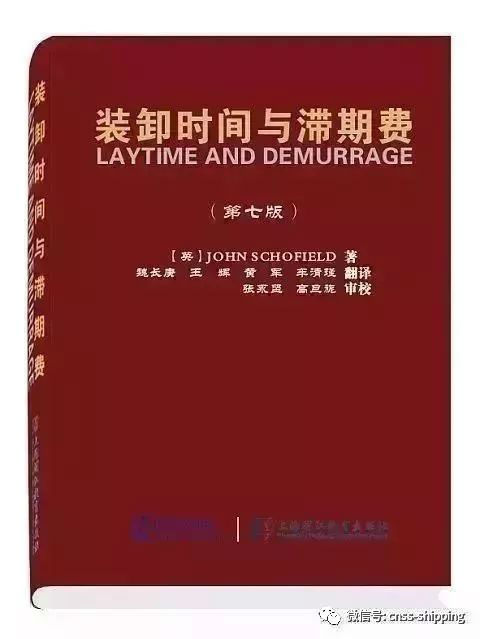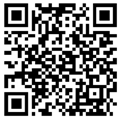《装卸时间与滞期费》第3章-装卸时间的起算-连载22
《装卸时间与滞期费》第6版
CHAPTER 3 第3章
Commencement of laytime
装卸时间的起算
3.137 In the Tres Flores case, there was an additional clause which provided that: ‘‘Before tendering notice Master has to take necessary measures for holds to be clean, dry, without smell and in every way suitable to receive grain to Shippers’/Charterers’ satisfaction.’’ This was said by the Court of Appeal to provide a condition precedent to the validity of a notice of readiness to load. The presence of pests requiring the holds to be fumigated was a breach of both this specific clause and the shipowners’ common law duty with regard to the condition of the holds. However, a distinction must be drawn between infestation prior to loading and infestation discovered after loading, but prior to discharge. In the absence of evidence to the contrary, such infestation is likely to have been brought on board with the cargo and would affect only the readiness of the cargo to be discharged, not the readiness of the vessel to discharge that cargo.165
3.137在The Tres Flores案,所涉及的租船合同中有一个附加条款规定:‘在递交准备就绪通知书前,船长必须采取所有必要的步骤以保证货舱清洁、干燥、没有异味,并在每一方面适于收受谷物,直到托运人/承租人满意为止。’这也是上诉法院所说的装货有效的准备就绪通知书的先决条件。货舱发现虫害需要熏舱,这不仅违反了这一条款的规定,也违反了船东对货舱条件所应尽的普通法义务。然而,装货前所发现的虫害同装货后卸货前所发现的虫害应该是有区别的。如果没有相反的规定的话,这类可能是由货物所带到船上来的虫害仅能影响准备要卸下的‘货物的准备工作’,而不影响准备要卸该货的‘船舶的准备工作’。 .
3.138 If there is no such specific clause relating to the condition of the holds, then the degree of cleanliness necessary will be a question of fact to be determined according to the practice of the particular trade and the degree of particularity of cargo agreed between the parties. In other words, the wider the range of cargoes which could lawfully be carried under a particular charter, the more general becomes the shipowner’s responsibility as to the degree of cleanliness required. If the holds are damp after being cleaned and the cargo is likely to be damaged by being put into those holds in their then condition, then the ship is not ready to load.
3.138如果没有这类关于货舱条件的特殊规定的话,货舱的清洁程度就是一个事实问题,需要根据具体的贸易习惯及双方当事人对货物的具体要求来定。换句话讲,根据某一具体租船合同所能合法运载的货物种类范围越大,船东要承担的货舱清洁程度就越笼统。如果货舱清洁后仍然潮湿,而且货物装入后或许会遭受损失,在这种情况下,该轮仍不能算是已经准备就绪。
3.139 However, if the commodity to be carried is not described in detail, then it would seem the shipowner has to prepare the vessel to carry any cargo which comes within that description. This is illustrated by London Arbitration 12/96. Here a charter was concluded by an exchange of telexes. In the first, which was described as a ‘‘Recap Agreement’’, the cargo was described as ‘‘full and complete bulk rice’’. The last two lines of the recap provided that the fixture was to be based on a stated earlier charter ‘‘logically amended’’. The response lifting subjects referred to the mainterms previously agreed and charterparty details to be based on the earlier charter, logically amended.
3.139然而,如果将来要运输的商品没有详细描述,那么,似乎船东必须做好载运这种描述范围内的任何货物的准备。这在报道的伦敦仲裁1996年第12号案中有阐述。在此,租船合同是通过来往电传订立的。在开始,被描述为‘重述要点文件协议’,货物被形容为‘满舱和满载散装大米’。在重述要点文件最后2行规定租约确认书是依据早先规定的租船合同并经过‘逻辑上的修改’。消除争议问题(解除限制条件)的回复电文提到早先同意的主要条文和租船合同的细节是基于早期的租船合同逻辑上的修改。
3.140 The actual dispute was as to whether the charterers were entitled to cancel the charter because the ship was not ready to load edible milled rice by the cancelling date.
3.140实际的争议是,由于船舶在销约期前没有做好准备装载研磨过可食用的大米,承租人是否有权解除合同?
3.141 Whilst most of the case centred on the meaning of the broking terms involved and whether a reference to edible milled rice in the earlier charter should be removed, the end result was that the tribunal held that the standard of cleanliness required was to load any rice cargo and not, as the owners argued, to a lower standard which they equated to grain standard.
3.141虽然大部分案情集中于所涉及的经纪术语的含义,以及在早期的租船合同中提到研磨过可食用的大米(的语句)是否应该被删除,但最终的结果是,仲裁庭判定所需要的洁净标准是装载任何大米货物,并不是如船东所争论,,等同于较低的粮食清洁标准。
3.142 In one American case, where the charter emphasised that the holds were to be cleaned to the satisfaction of the charterers (the US Government), it was held that the only limitation that should be imposed was that they should act in good faith. It was not appropriate to impose an objective reasonable standard.
3.142在一个美国案例,租船合同强调说货舱要清洁到令承租人(即美国政府)满意的程度。法院判定:所要求的程度仅限于他们的行为必须诚实善意,并不适宜强加一个客观的合理标准。
3.143 One factor that may be taken into account in determining the amount of cleaning that could reasonably be expected is the time scale known to both parties between discharge of one cargo and loading the next. An illustration of this is provided by a London Arbitration Award described in Lloyd’s Maritime Law Newsletter, where the relevant charter stated that there was expected to be some three days ‘‘all going well’’ between completion of discharge at one port and arrival at the next ready to load. It also provided that the owners should ‘‘instruct the Master to thoroughly wash the holds and hatches during the ballast voyage to loadport so as to be clean on arrival’’. This the crew did. The charter was to load a cargo of heavy grain, sorghum or soyas and on arrival the vessel was inspected, inter alia, by a USDA surveyor who rejected the vessel on account of paint and rust scale. After further cleaning by shore contractors, the vessel was accepted. The charterers claimed that, had the vessel met the required standard on arrival, then she would have berthed without delay and they calculated a balance of despatch on this basis. However, this was rejected by the arbitrators, who said they could not interpret the charter as requiring the owners to have all paint and rust scale removed from the holds in the short period known to be available. The owners had simply undertaken to make the holds clean, which they had done.
3.143在判断能够合理地预计达到的货舱清洁程度时,所要考虑的一个因素是双方当事人已经知道上一次卸货与下一次装货之间的间隔时间长短。在《劳氏海商法资讯》中刊载了一个伦敦仲裁裁决书,对这一因素进行了阐述,其中有关合同规定:从卸完货的港口到下一个装货港预计大约需要3天时间,如果‘一切顺利’。还规定:船东应该‘指示船长在驶往装港的空放航次中对所有的货舱和舱口彻底清洗,以便抵港是清洁的’。当然这些都是船员干的活儿。承租人要装诸如高粱、大豆之类的重谷物,但当船舶到达后,美国农业部的检验员发现货舱中有油漆皮和锈片,验舱拒绝通过。后来经由岸上承包商进一步的清洁,才算通过。承租人主张说,如果船舶到达时满足验舱要求的标准,她就早已经靠泊而没有耽搁,这样以此计算还会得到一些速遣费。然而,仲裁员驳回了他的要求,他们说,他们不会这样解释租约如此要求船东在这么短的期间内将货舱内的所有的油漆皮和锈片清除干净,这是大家共知的。船东只能保证尽其所能,他已做到了。
3.144 London Arbitration 7/88 concerned a vessel which had purported to give notice of readiness whilst still Butterworthing her tanks. The arbitrators, however, found that the ship was not ready to load for the purposes of giving a valid notice of readiness until her tanks had been cleaned and the water and crude slops collected into separate tanks.
3.144 在报道的伦敦仲裁1988年第4号案中,有关船舶当她还在洗舱时就声称她已准备就绪了。不过,仲裁员认定:只有当货油舱已经清洗干净,并且已将洗舱水和污油水收集到分隔舱后,她才算准备就绪,才能递交有效的通知书。
3.145 In the parcel tanker trade, where the risk of contamination is clearly much greater, it is common for the parties to agree in more detail what standard of cleanliness is required. Thus, Part II of the Bimchemvoy charter contains the following clauses relating to the condition of the tanks on loading:
1. Condition of Vessel
. . . The Owners shall
(a) before and at the beginning of the loaded voyage exercise due diligence to make the Vessel seaworthy and in every way fit for the voyage, with her tanks, valves, pumps and pipelines tight, staunch, strong and in good order and condition...
2. Last Cargo
Last cargo(es) as stated in Box 11 but the last cargo carried shall, to the best of Owners’ knowledge, not be harmful to the carriage of the contracted cargo.
8. Inspection of Cargo Tanks
Charterers’ inspection of tanks, pipes and pumps nominated for the contracted cargo as specified in Box 21 to take place as soon as possible after Vessel tenders notice but latest on Vessel’s arrival at loading berth, otherwise any time lost shall count as laytime.
9. Cleaning
Owners shall clean Vessel’s tanks pipes and pumps at their expense and in their time and unless the Master certifies that Vessel’s coils have been tested and found tight, shall test tightness of coils at their expense and in their time to the satisfaction of Charterers’ inspector.
If, in Owners’ opinion, acceptance of the tanks and/or coils is unreasonably withheld, then an independent inspector shall be appointed whose decision shall be final. If the independent inspector considers that the tanks are insufficiently clean to receive the cargo, then they shall be further cleaned at Owners’ expense and time to the satisfaction of the independent inspector whose fees and expenses shall be paid by the Owners. If the independent inspector considers that the tanks are sufficiently clean to receive the cargo his fees and expenses plus any loss of time and expense incurred by Owners shall be borne by Charterers.
Upon acceptance of tanks, the inspector shall provide the Vessel with a ‘‘Clean Tank’’ Certificate.
In addition to the inspection mentioned above, it is common practice to take a ‘‘first foot’’ sample from each tank at the start of loading.
3.145在多隔舱零担油轮贸易中,污染的风险明显地越来越大,通常,当事双方在签订协议时,对于清洁程度的要求也就越来越详细。正如波罗的海标准化学品航次租船合同第II部分中,就装货液货舱状况规定有下列条款:
1. 船舶状况
……船东必须做到:
(a)在载货航次开始之前或当时,谨慎处理/恪尽职守使船舶适航,并在各方面做好适合航程的准备,并且液货舱、阀门、泵浦以及管路均水密、坚实、牢固,并处于良好状态。
2. 上航次载运的货物
在表格的第11栏里所注明的上个航次所载运的货物应尽船东所知,不应该会对本合同中所订明的货物产生任何损害。
8. 液货舱检验
根据表中第21栏的规定,承租人要针对合同中订明的货物对油舱、管路和泵浦进行检验。该检验应在船舶递交了准备就绪通知书后尽早开始,最迟应该在船舶抵达了装货泊位时结束,否则时间损失应计为装卸时间。
9. 清洁
船东必须对液货舱管路和泵浦进行清洁,费用和时间由他自己承担。除非船长能证实该轮的加热管路已测试完毕,完全水密,否则还要自己出资花时间进行管路水密检测,直至承租人的检验员满意为止。
如果船东认为,液货舱及/或管路的验收被不合理地拒绝,那么,应该可以任命一个独立的检验师,他的结论是最终的。若这位独立的检验师认为,该油舱的清洁程度不适于收受即将装载的货物,因此再次清洁直至该独立检验师满意为止的费用和时间,包括独立检验师的检验费和日常开支,均由船东承担。若该独立检验师认为:该油舱的清洁程度足以收受即将装载的货物,则该独立检验师的费用和开支以及船东因此所遭受的时间损失和所花的费用均由承租人承担。
验舱通过后,检验师就应该签发给该轮一份‘验舱合格’证明。
除了上面所讲的检验之外,实践中通常在开始装货时还要对每一个油舱进行‘底层舱底第一批次货物取样化验’。








